10 Best Herbal Decoctions For Arteriosclerosis
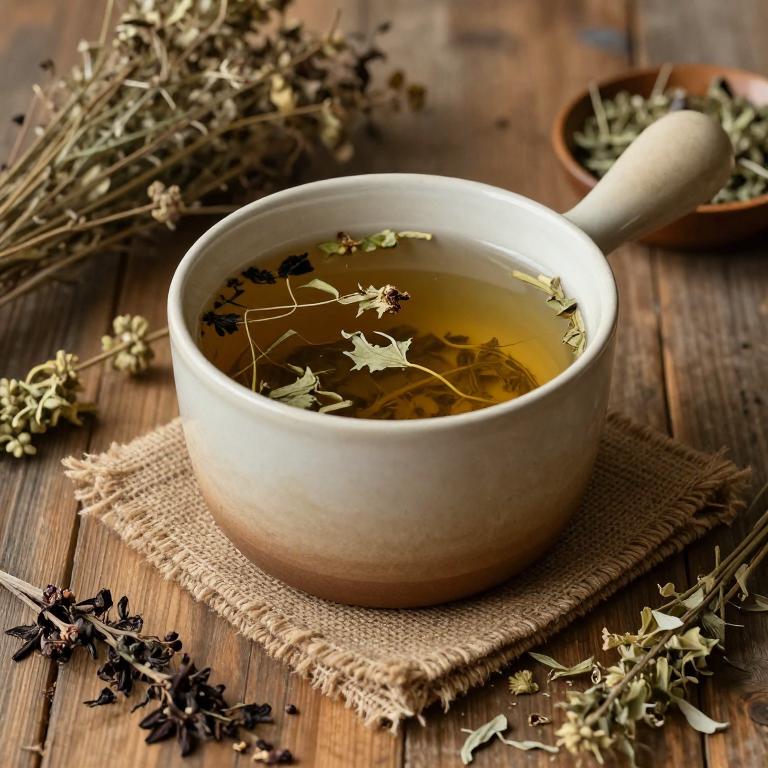
Herbal decoctions have been explored as complementary approaches to managing arteriosclerosis, a condition characterized by the thickening and hardening of arterial walls.
Certain herbs, such as garlic, ginger, and turmeric, are believed to possess properties that may help reduce inflammation and improve blood flow. These decoctions often work by promoting cardiovascular health through antioxidant and anti-inflammatory effects. While they may offer some benefits, they should not replace conventional medical treatments but rather be used under professional guidance.
Further research is needed to fully understand their efficacy and safety in the context of arteriosclerosis management.
Table of Contents
- 1. Ginkgo (Ginkgo biloba)
- 2. Common grape (Vitis vinifera)
- 3. Panax ginseng (Panax ginseng)
- 4. Thistle (Silybum marianum)
- 5. Ceylon cinnamon (Cinnamomum verum)
- 6. Yarrow (Achillea millefolium)
- 7. Stinging nettle (Urtica dioica)
- 8. Red sage (Salvia miltiorrhiza)
- 9. Ginger (Zingiber officinale)
- 10. Garlic (Allium sativum)
1. Ginkgo (Ginkgo biloba)

Ginkgo biloba herbal decoctions have been traditionally used for their potential cardiovascular benefits, particularly in the context of arteriosclerosis.
These decoctions are prepared by simmering the leaves of the ginkgo tree in water, extracting compounds such as flavonoids and terpene lactones, which are believed to have antioxidant and anti-inflammatory properties. Some studies suggest that these compounds may improve blood flow and reduce oxidative stress, potentially slowing the progression of arterial plaque buildup. However, while preliminary research shows promise, more rigorous clinical trials are needed to confirm their efficacy and safety in treating arteriosclerosis.
As with any herbal remedy, it is important to consult a healthcare professional before using ginkgo biloba decoctions, especially for individuals with existing cardiovascular conditions or those taking medications.
2. Common grape (Vitis vinifera)
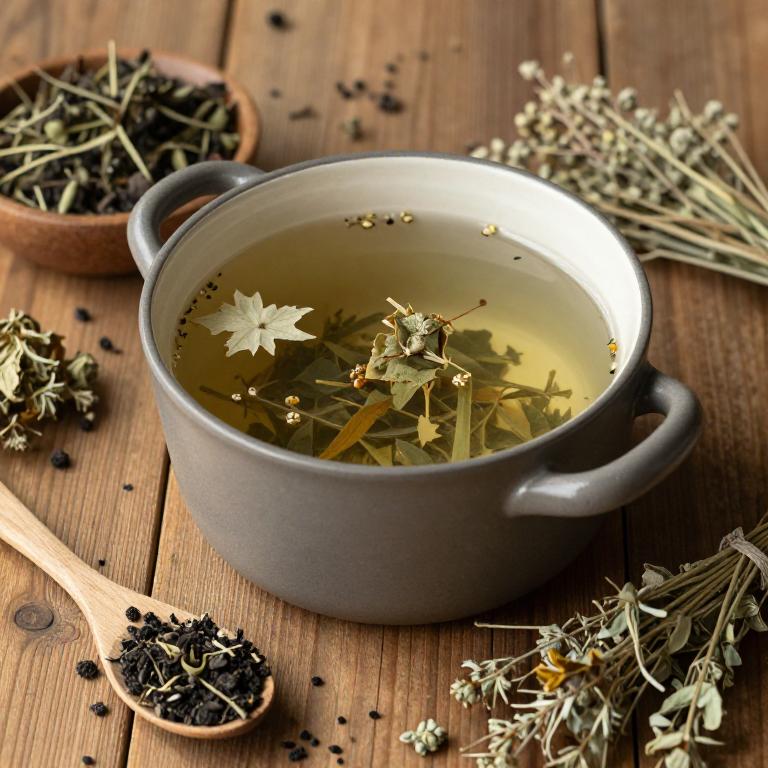
Vitis vinifera, commonly known as the common grapevine, has been traditionally used in herbal medicine for its potential cardiovascular benefits.
Herbal decoctions made from Vitis vinifera, particularly its seeds and leaves, contain bioactive compounds such as resveratrol, which exhibit antioxidant and anti-inflammatory properties. These properties may help reduce oxidative stress and inflammation, key contributors to the development of arteriosclerosis. Studies suggest that regular consumption of Vitis vinifera decoctions could support arterial health by improving endothelial function and reducing plaque formation.
However, more clinical research is needed to fully understand its efficacy and safety in treating arteriosclerosis.
3. Panax ginseng (Panax ginseng)
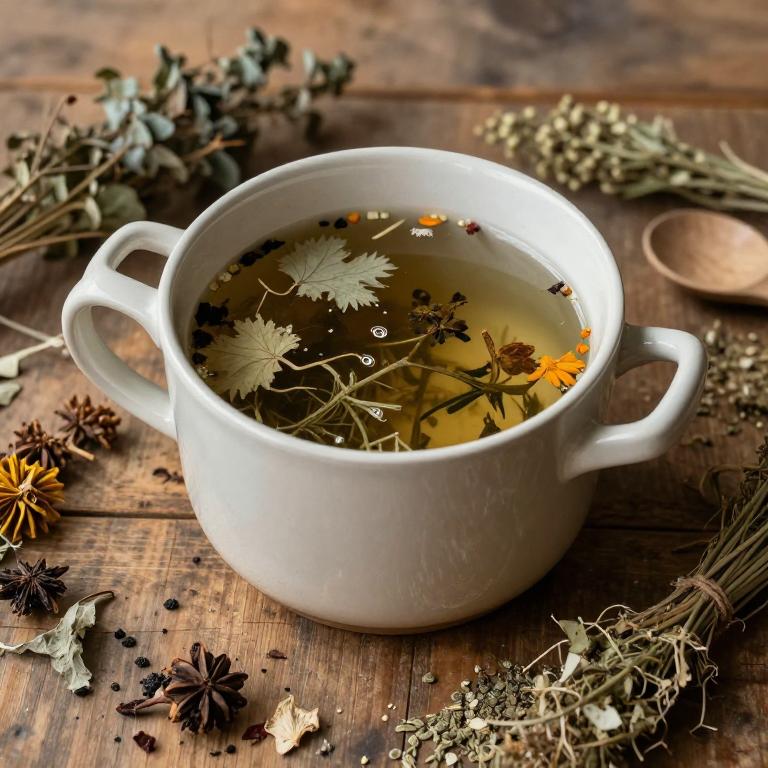
Panax ginseng, a widely used traditional herbal remedy, has been studied for its potential benefits in managing arteriosclerosis, a condition characterized by the hardening and narrowing of arteries.
Herbal decoctions made from Panax ginseng contain bioactive compounds such as ginsenosides, which may help reduce oxidative stress and inflammation, both of which are key contributors to arterial damage. Some research suggests that these decoctions may improve endothelial function and promote better blood flow, potentially slowing the progression of arteriosclerosis. However, while preliminary studies show promise, more rigorous clinical trials are needed to establish the efficacy and safety of Panax ginseng decoctions in treating this condition.
As with any herbal treatment, it is important to consult a healthcare professional before using Panax ginseng, especially for individuals with existing cardiovascular conditions.
4. Thistle (Silybum marianum)

Silybum marianum, also known as milk thistle, contains active compounds such as silymarin, which have been studied for their potential benefits in cardiovascular health.
Herbal decoctions made from Silybum marianum are often used to support liver function, which in turn may contribute to overall cardiovascular wellness. Some preliminary research suggests that silymarin may help reduce oxidative stress and inflammation, factors implicated in the development of arteriosclerosis. While more clinical studies are needed to confirm its efficacy, some healthcare practitioners recommend Silybum marianum as a complementary therapy for individuals at risk of or suffering from arteriosclerosis.
As with any herbal remedy, it is important to consult with a healthcare professional before incorporating it into a treatment plan.
5. Ceylon cinnamon (Cinnamomum verum)

Cinnamomum verum, commonly known as true cinnamon, has been traditionally used in herbal medicine for its potential cardiovascular benefits.
Herbal decoctions made from the bark of Cinnamomum verum may help reduce oxidative stress and inflammation, which are key factors in the development of arteriosclerosis. Studies suggest that the active compounds in cinnamon, such as cinnamic acid and procyanidins, may improve endothelial function and lower LDL cholesterol levels. While more clinical research is needed, some preliminary evidence indicates that cinnamon decoctions could support the management of arterial stiffness and plaque formation.
As with any herbal remedy, it is important to consult a healthcare professional before using cinnamon for therapeutic purposes, especially for individuals with existing cardiovascular conditions.
6. Yarrow (Achillea millefolium)

Achillea millefolium, commonly known as yarrow, has been traditionally used in herbal medicine for its anti-inflammatory and antispasmodic properties.
Recent studies suggest that its herbal decoctions may help in managing arteriosclerosis by reducing oxidative stress and inflammation in arterial walls. The active compounds, such as flavonoids and essential oils, are believed to improve vascular function and inhibit the formation of atherosclerotic plaques. While more clinical research is needed, preliminary evidence indicates that yarrow decoctions could be a complementary therapy in the treatment of cardiovascular diseases.
However, it is important to consult a healthcare professional before using yarrow as part of a treatment regimen for arteriosclerosis.
7. Stinging nettle (Urtica dioica)

Urtica dioica, commonly known as stinging nettle, has been traditionally used in herbal medicine for its potential cardiovascular benefits.
Herbal decoctions made from the leaves and stems of Urtica dioica are believed to support circulatory health and may help in the management of arteriosclerosis due to their high content of minerals and bioactive compounds. These decoctions are thought to improve blood flow, reduce inflammation, and potentially lower cholesterol levels, which are key factors in the progression of arteriosclerosis. However, while some preliminary studies suggest possible benefits, more clinical research is needed to confirm their efficacy and safety in treating this condition.
As with any herbal remedy, it is important to consult a healthcare professional before using Urtica dioica decoctions as part of a treatment plan for arteriosclerosis.
8. Red sage (Salvia miltiorrhiza)
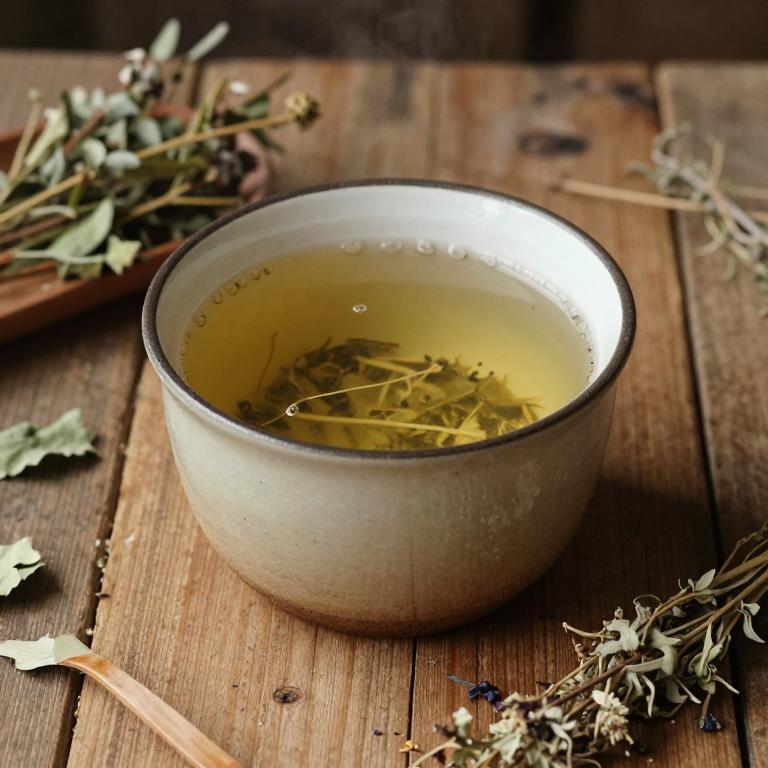
Salvia miltiorrhiza, commonly known as Chinese sage, has been traditionally used in herbal medicine for its potential cardiovascular benefits.
Its herbal decoctions are believed to improve blood circulation and reduce oxidative stress, which are key factors in the development of arteriosclerosis. Studies suggest that the active compounds in Salvia miltiorrhiza, such as tanshinone and salvianolic acid, may help inhibit the formation of atherosclerotic plaques by reducing inflammation and lipid accumulation in arterial walls. These properties make it a promising complementary therapy in the management of arteriosclerosis.
However, further clinical research is needed to fully establish its efficacy and safety in treating this condition.
9. Ginger (Zingiber officinale)

Zingiber officinale, commonly known as ginger, has been traditionally used in herbal medicine for its potential cardiovascular benefits.
Recent studies suggest that ginger's bioactive compounds, such as gingerols and shogaols, may help reduce inflammation and oxidative stress, both of which are key contributors to arteriosclerosis. Herbal decoctions made from fresh or dried ginger roots can be prepared by simmering the root in water for several minutes, allowing the extraction of these beneficial compounds. Some preliminary research indicates that regular consumption of ginger decoctions may support arterial health by improving blood flow and reducing plaque buildup.
However, while these findings are promising, more clinical trials are needed to fully establish the efficacy and safety of ginger decoctions in the treatment of arteriosclerosis.
10. Garlic (Allium sativum)
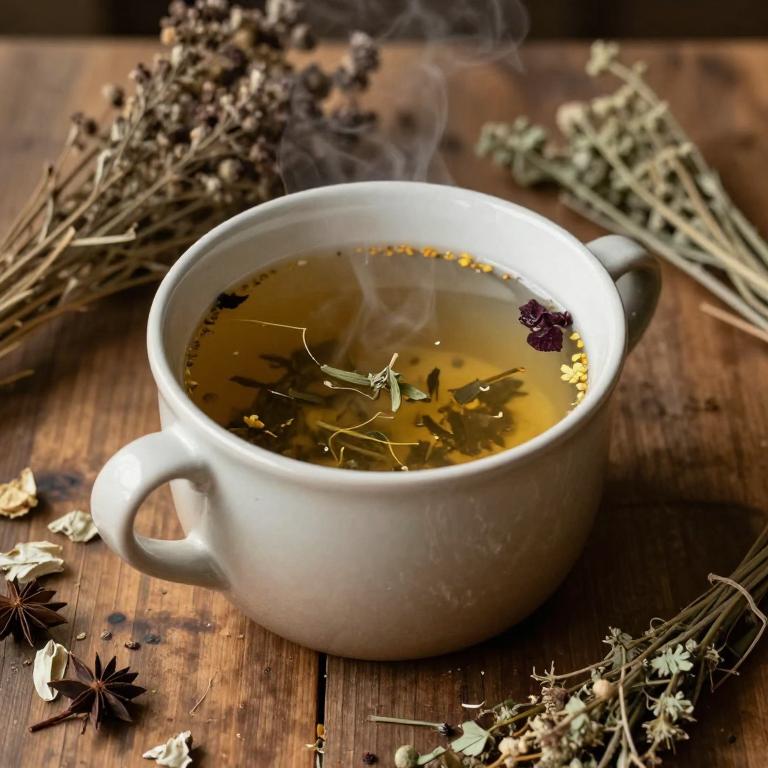
Allium sativum, commonly known as garlic, has been traditionally used for its potential cardiovascular benefits, including its role in managing arteriosclerosis.
Herbal decoctions of garlic involve simmering the cloves in water to extract bioactive compounds such as allicin, which are believed to contribute to its therapeutic effects. Studies suggest that these decoctions may help reduce oxidative stress and inflammation, key factors in the development of arterial plaque. Garlic decoctions may also support the regulation of blood pressure and cholesterol levels, which are critical in preventing the progression of arteriosclerosis.
However, while preliminary research is promising, further clinical trials are needed to fully establish the efficacy and safety of garlic decoctions as a complementary therapy for this condition.